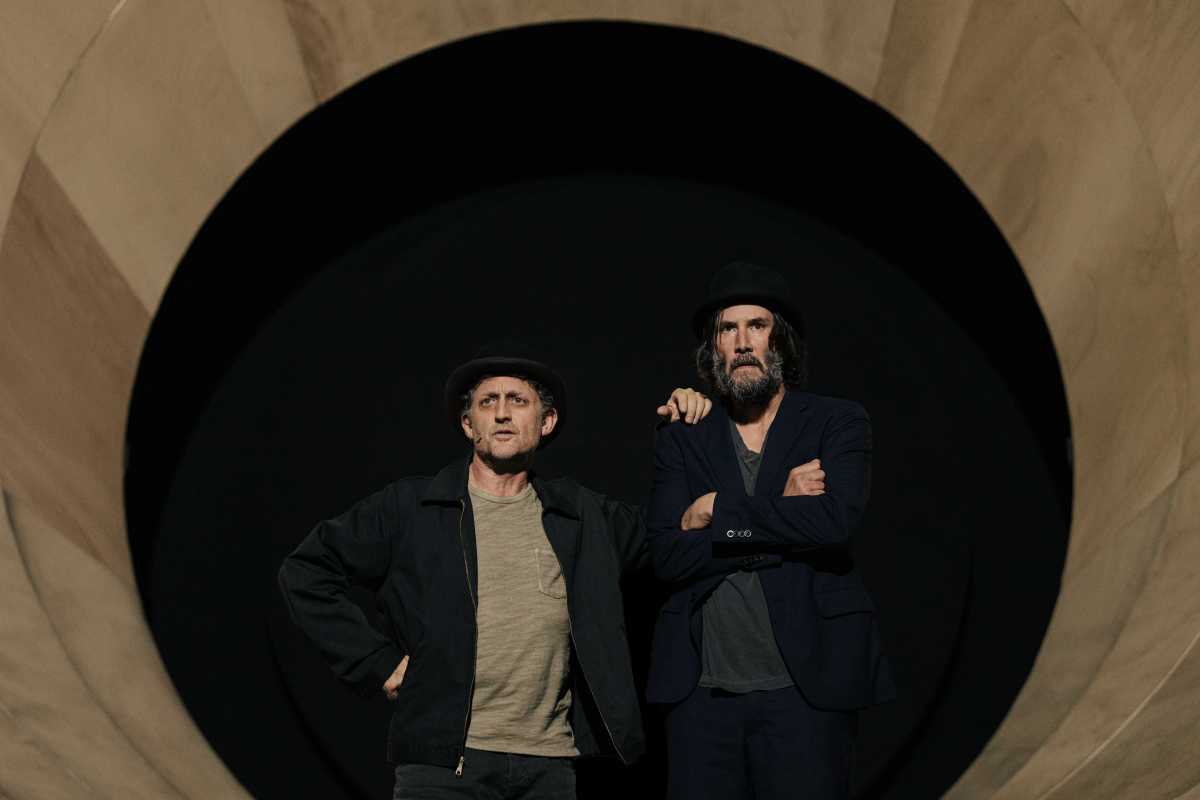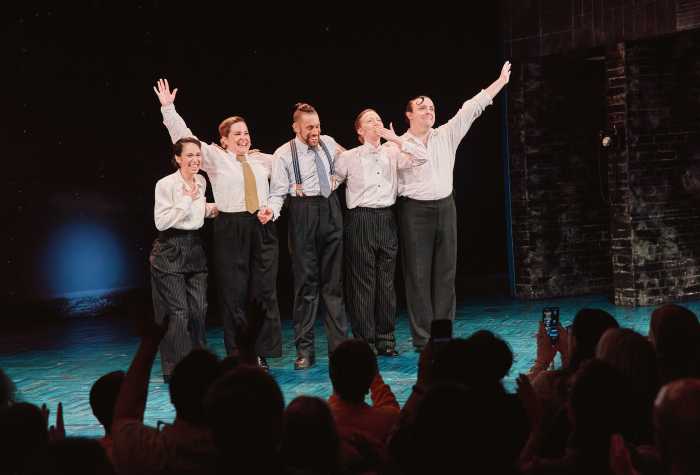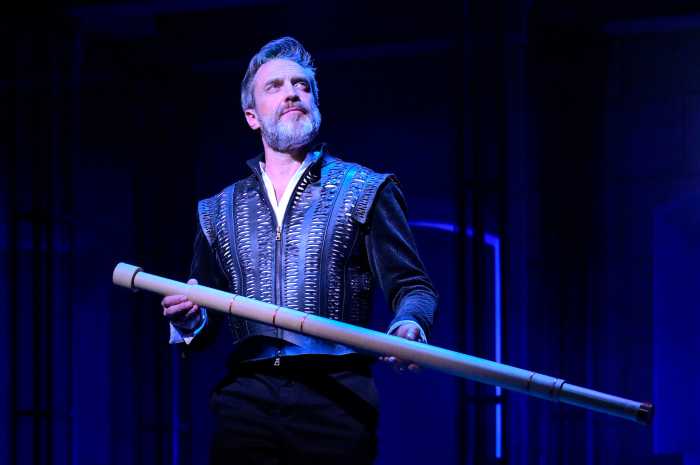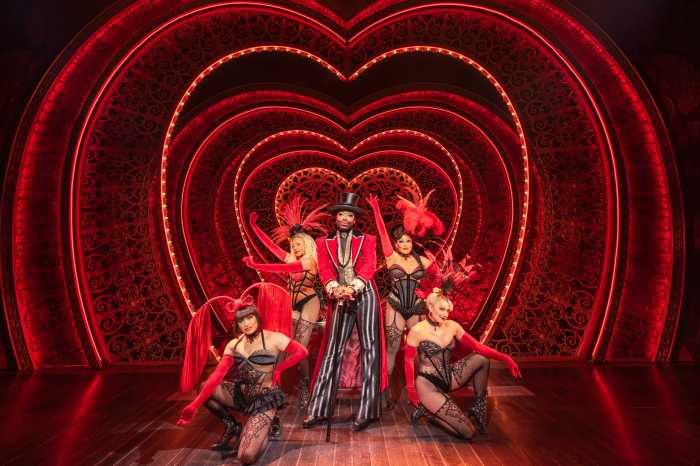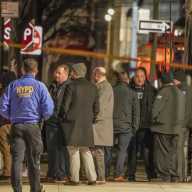Is New York ready for a Beckett binge? This fall, the city will be flooded with futility, repetition, and existential dread as three classic Samuel Beckett plays—”Waiting for Godot,” “Endgame,” and “Krapp’s Last Tape”—all arrive at once.
On Broadway, director Jamie Lloyd’s starry revival of “Waiting for Godot,” with Keanu Reeves and Alex Winter (yes, Bill and Ted reunited), is currently in previews at the Hudson Theatre.
Off-Broadway, Stephen Rea will perform “Krapp’s Last Tape” at NYU Skirball, and the Irish theater company Druid will celebrate its 50th anniversary with Garry Hynes’ production of “Endgame” at Irish Arts Center. The only full-length Beckett play missing is “Happy Days.”
Reeves and Winter join this tradition of marquee casting designed to make audiences who might never otherwise buy a ticket to Beckett feel at ease. In 1988, Robin Williams and Steve Martin famously tried their hand at Vladimir and Estragon at Lincoln Center. In 2009, Nathan Lane and Bill Irwin paired with John Goodman in a revival that remains one of the rare productions to win over skeptics. Soon after, Patrick Stewart and Ian McKellen gave their double act to Broadway.
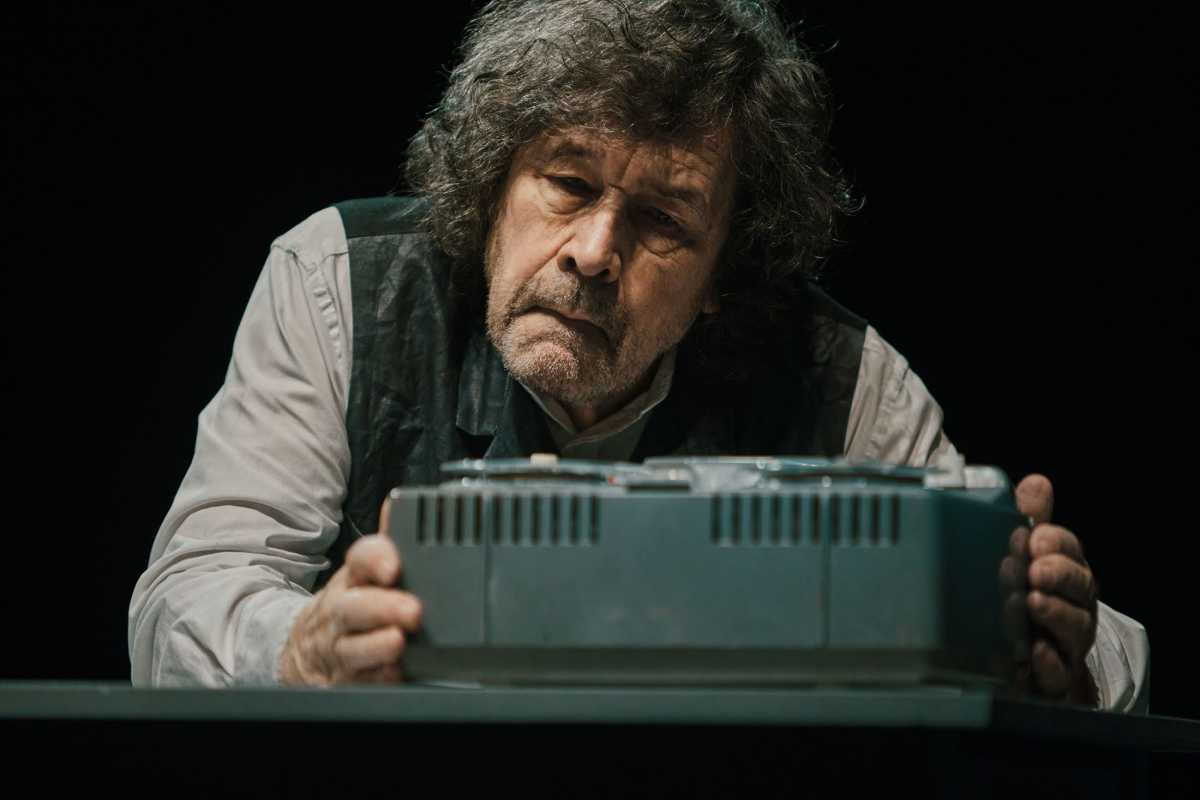
Beckett’s plays are often frustrating: slow, cryptic, and seemingly about nothing. You often leave irritated, wondering if you “got it” at all. I usually fall into that camp myself. But under the right conditions, the plays can work brilliantly.
And those conditions might be right for today.
“Godot” could easily be set in America 2025, where people keep waiting for political renewal, social healing, or some savior who never arrives. It mirrors the endless news cycle and the sense that nothing ever truly changes.
“Endgame” evokes the claustrophobia of lockdowns and climate dread, with characters unable to escape their dysfunctional arrangements, much like a nation resigned to doomscrolling.
“Krapp’s Last Tape” eerily resembles scrolling through one’s own digital archive, confronting younger, more optimistic versions of ourselves. In the age of artificial intelligence and permanent online memory, revisiting the past feels as much like torment as nostalgia.
Beckett’s influence extends far beyond the stage. It is unmistakable in the television series “Severance,” where office workers endlessly repeat meaningless tasks, stripped of personal history and identity. Like the tramps in Godot or the figures in Endgame, they exist in a bleak loop.
Even “The Matrix,” the film that made Keanu Reeves an icon, shares Beckett’s DNA: barren landscapes of futility, characters questioning reality, and endless waiting for liberation that may never arrive. For audiences coming to “Godot” because of Reeves, the world may feel oddly familiar.
Broadway may get the glitz with Reeves and Winter. But taken together, the three plays underscore Beckett’s unity of vision: characters waiting, remembering, circling endlessly, never escaping. For theatergoers, it is both a challenge and an opportunity. And perhaps a bold producer or theater company will complete the cycle by staging “Happy Days” with a famous actress gamely buried in sand, reciting Beckett’s longest monologue.
Then New York could claim the rarest of feats: all four Beckett masterpieces onstage at once, transforming the city into a veritable festival of futility.



